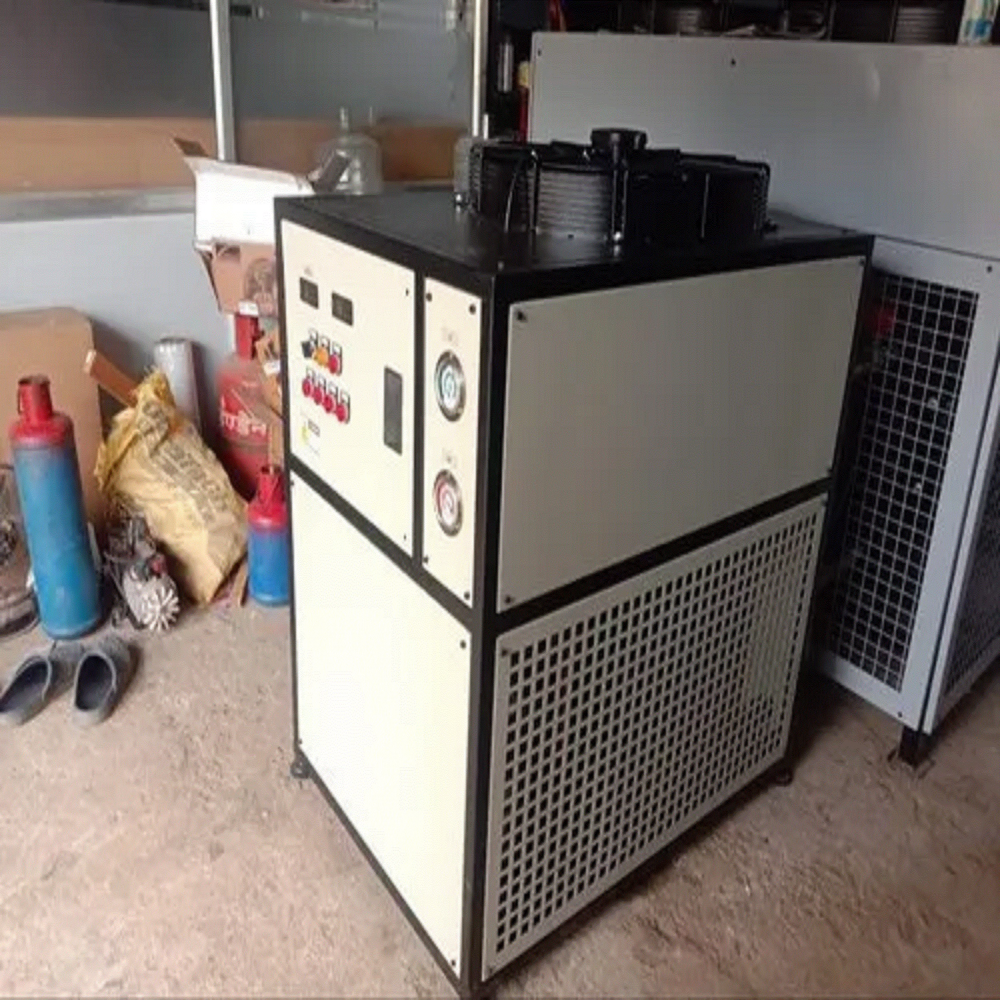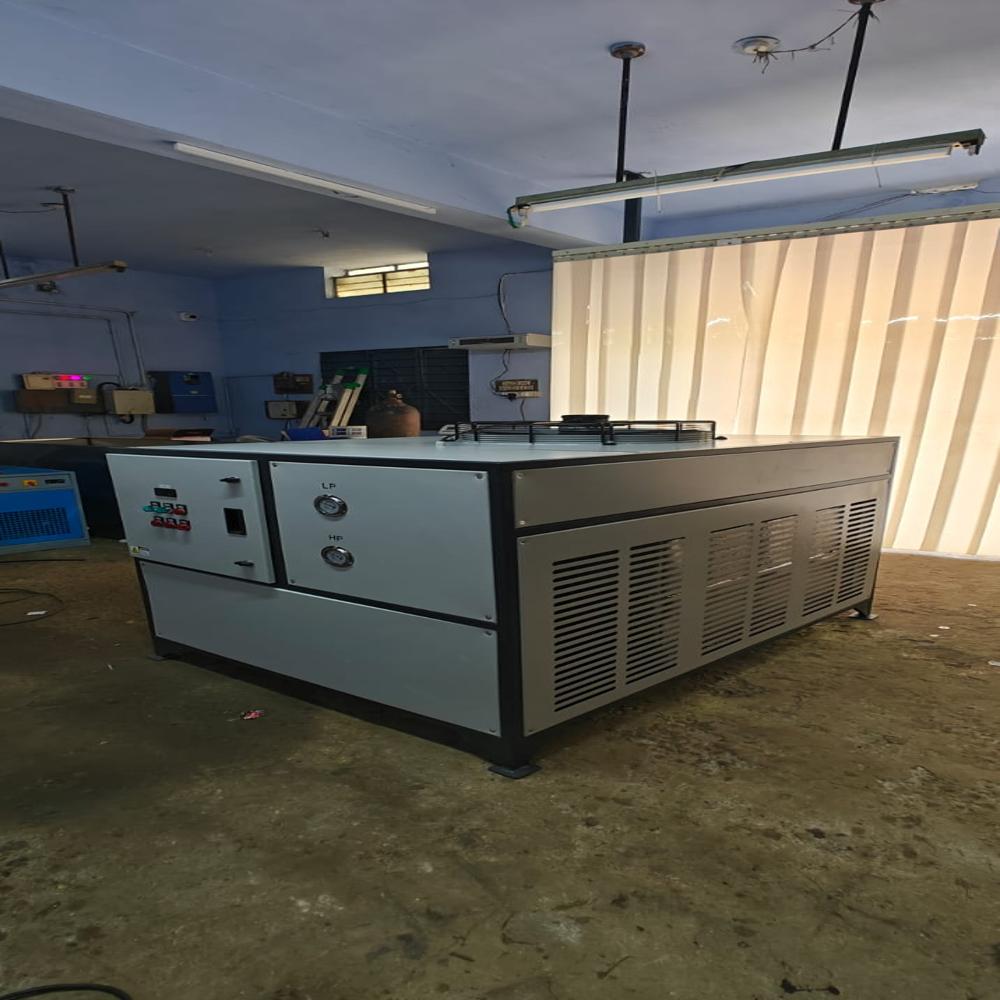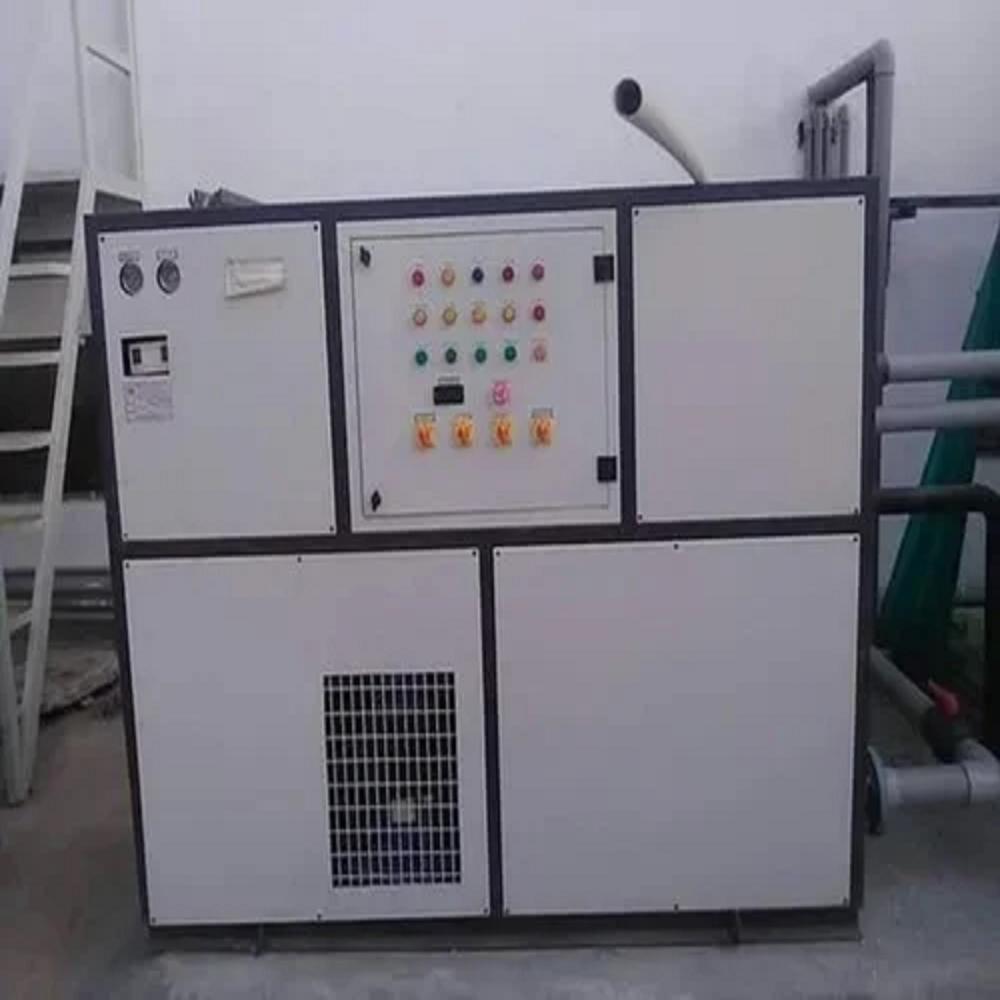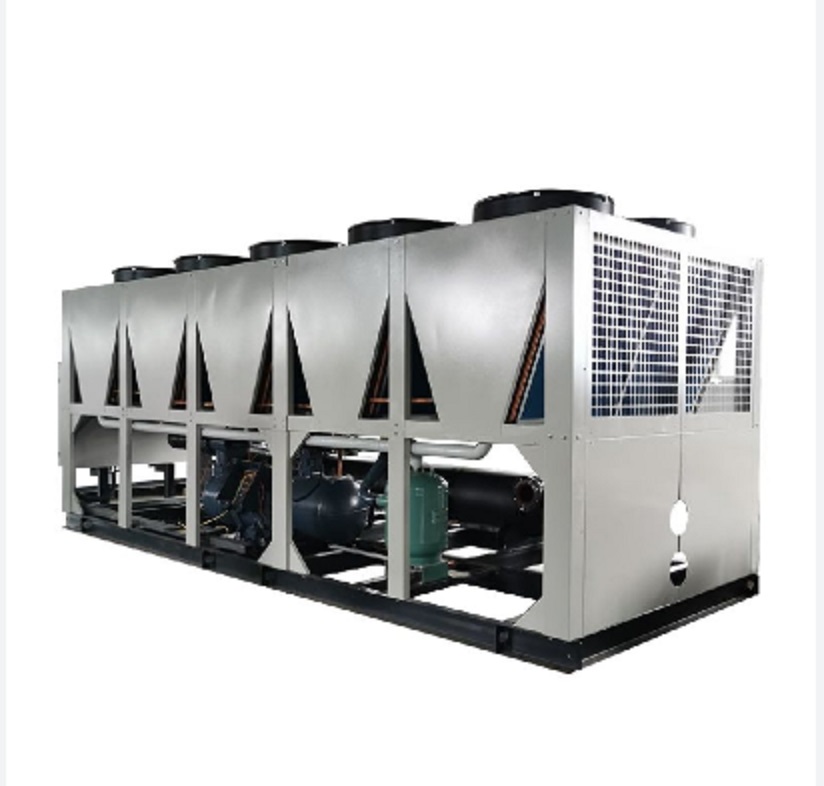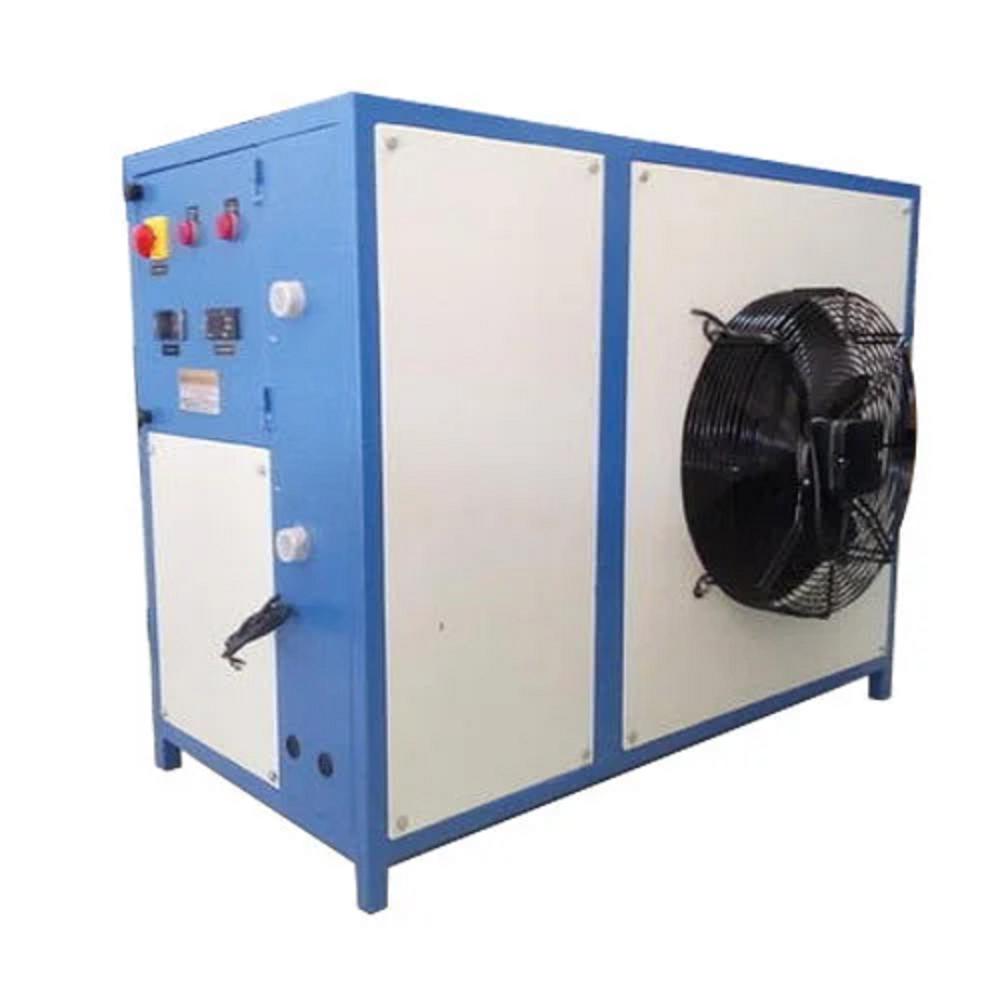6TR AIR COOLED PROCESS CHILLER
Product Details:
- Material Metal
- Water Flowing Rate 75
- Length 1960 Millimeter (mm)
- Product Type AIR COOLED
- Height 880 Millimeter (mm)
- Usage INDUSTRIAL
- Width 800 Millimeter (mm)
- Click to View more
6TR AIR COOLED PROCESS CHILLER Price And Quantity
- 1 Number
- 235000.00 INR/Number
6TR AIR COOLED PROCESS CHILLER Product Specifications
- GREY,WHITE
- 520 Kilograms (kg)
- 800 Millimeter (mm)
- INDUSTRIAL
- 415/3/50
- New
- 1.5 HP
- Millimeter (mm)
- AIR COOLED
- 880 Millimeter (mm)
- AIR COOLED
- INDUSTRIAL
- 85 db
- 75
- Metal
- SCROLL
- 1960 Millimeter (mm)
- 1
6TR AIR COOLED PROCESS CHILLER Trade Information
- Cash in Advance (CID)
- 5 Number Per Month
- 15 Days
- No
- All India
Product Description
A 6TR (6 Ton Refrigeration) air-cooled process chiller is a refrigeration system that uses air to cool the refrigerant and maintain a stable temperature for industrial processes. It typically involves a compressor, condenser, expansion valve, and evaporator, with the condenser rejecting heat to the surrounding air. These chillers are often used in applications where the excess heat generated isn't a significant issue, such as in manufacturing or other industrial settings.
Here's a more detailed breakdown:
Key Components and Functionality:
- Refrigerant: The refrigerant absorbs heat from the process fluid and carries it to the condenser.
- Compressor: Compresses the refrigerant vapor, increasing its temperature and pressure.
- Condenser: Releases the heat from the compressed refrigerant to the surrounding air.
- Expansion Valve: Reduces the pressure of the liquid refrigerant, causing it to cool.
- Evaporator: The cooled refrigerant absorbs heat from the process fluid, chilling it.
- Air-Cooled Condenser: Uses fans to blow air over the condenser coils, facilitating heat transfer to the atmosphere.
- Temperature Control: A control system regulates the flow of chilled water based on the cooling requirements of the process.
Typical Applications:
- Plastic and Rubber Industry: Used to control the temperature of molds and maintain consistent product quality.
- Metal Working: Provides cooling for machinery and processes, preventing overheating and ensuring precision.
- Chemical and Pharmaceutical Industries: Maintains precise temperatures for chemical reactions and product storage.
- Food and Beverage Processing: Used for cooling products and maintaining hygienic conditions.
- Laser and Electronics Industries: Essential for temperature-sensitive processes and equipment.
Advantages of Air-Cooled Chillers:
- Lower Installation Cost: Generally less expensive to install than water-cooled chillers due to the absence of cooling towers and plumbing.
- Reduced Water Consumption: Don't require a continuous water supply for cooling, making them suitable for areas with water scarcity.
- Simpler Maintenance: Fewer components and simpler systems can result in easier maintenance.
Considerations:
- Ambient Temperature:
The effectiveness of an air-cooled chiller can be affected by high ambient temperatures, as it relies on the surrounding air for heat dissipation.
- Location:
Air-cooled chillers are typically located outdoors or in well-ventilated areas to ensure proper airflow for heat rejection.

Price:
- 50
- 100
- 200
- 250
- 500
- 1000+

